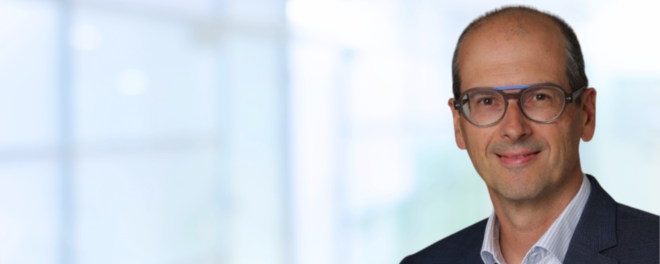
Emmanuel, Meraxis completed the acquisition of Fournier six months ago. Did the two companies get off to a good start together?
I couldn't have imagined it any better. Of course, we had already gauged many things before the merger. What values do we share? How do our offerings fit together? How do customers benefit from Fournier and Meraxis? Now, after six months of working together, it's clear that we really do match strategically and personally.
How does this fit manifest itself?
The most obvious thing is that our portfolio is complementary. In addition to standard polymers and additives, Fournier expands the Meraxis range of materials to include technical polymers in particular. For example, we can now offer polyamides and polypropylene, as well as thermoplastic elastomers and weather-resistant ASA. All these products and the associated know-how are now also available to Meraxis customers. In addition, Fournier is one of the most important distribution channels for ExxonMobil products in Europe.
Meraxis brings its one-stop store to the table. So, Fournier customers now have the opportunity to get everything they need from a single source. From injection molds to trade parts. This simplifies the purchasing process immensely. Especially because Fournier's customers tend to be smaller or medium-sized companies. If there is no large purchasing department in a company, a full-service partner can add real value.
Meraxis is a globally active and Fournier also has an international presence. How does the cooperation work in the different countries?
We also complement each other geographically because our international focus is not the same. North African countries such as Morocco and Tunisia, where Meraxis was not present previously, serve as an example. Fournier's customers now benefit not only from the expanded product portfolio, but also from greater security in the supply of raw materials. The Meraxis supplier network, which includes reliable, long-standing partner companies for standard polymers, is now available.
What about markets in which both companies are active?
Of course, there are also overlaps on the map, for example in the Benelux countries. Our activities there complement each other because we serve different customer groups. In concrete terms, this means that customers can continue to count on their current contact persons, who remain the same as before.
This consistency is equally important to Meraxis and Fournier. To what extent do the companies have similar roots and share similar values?
Meraxis is a family-owned company that has grown over decades. Fournier shares this background. I believe this leads to both companies attaching great importance to long-term business relationships that are based on reliability. This applies to cooperation with customers, but also to supplier relationships. We have an established network of partner companies that gives us flexibility and creates options for action. As a result, our customers can rely on us to provide stability and security of supply even in difficult market phases - even when supply chains are under pressure everywhere.
Being in the business for the long run also means acting with an eye to the future and continuously developing. After all, to survive in such a dynamic sector as the plastics industry, progress and innovations are required. It is therefore equally important for us to support polymer processors with the development of new products and solutions. This means, for example, that the technical experts in the Fournier team work together with experienced suppliers to develop new formulations for customer-specific requirements – or that Meraxis develops digital tools that help customers to set up their procurement more efficiently or to make their production more sustainable.
Thanks for the insight, Emmanuel.